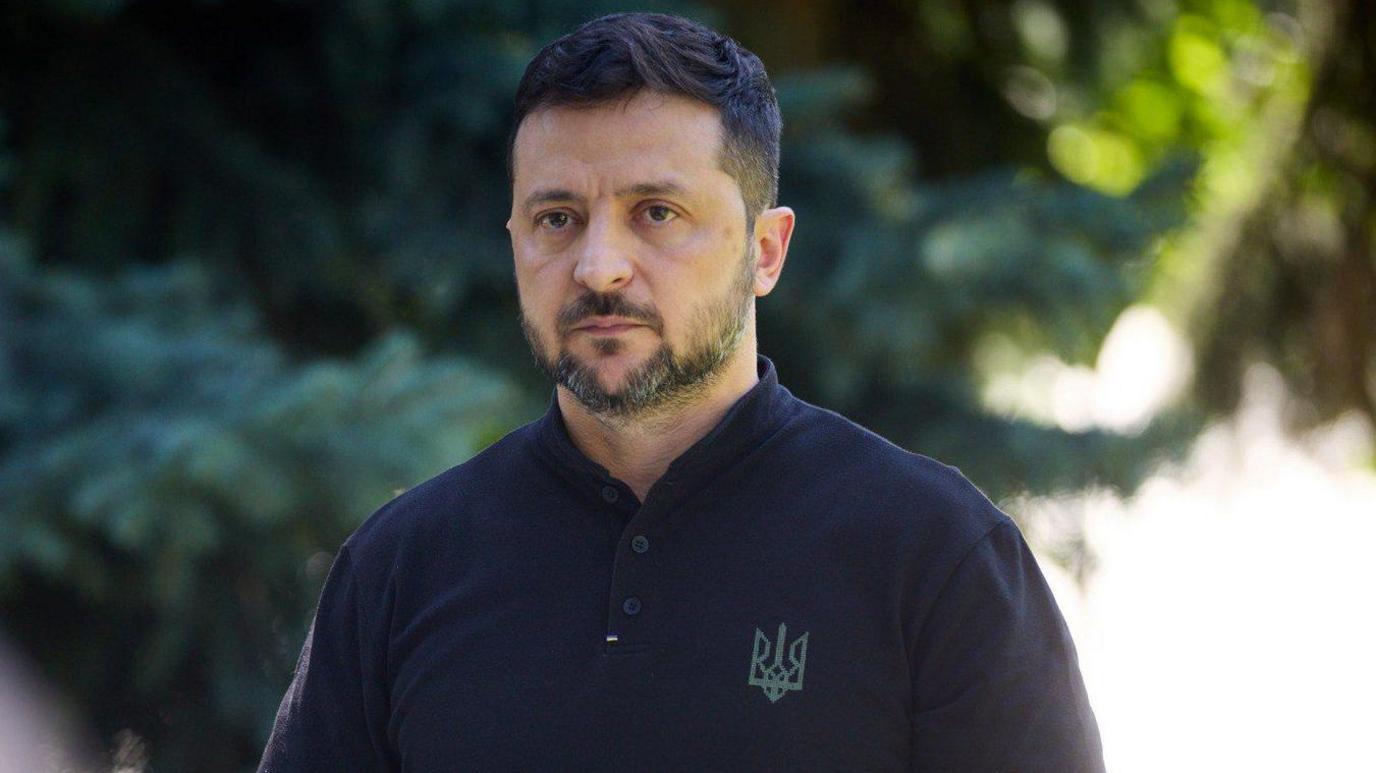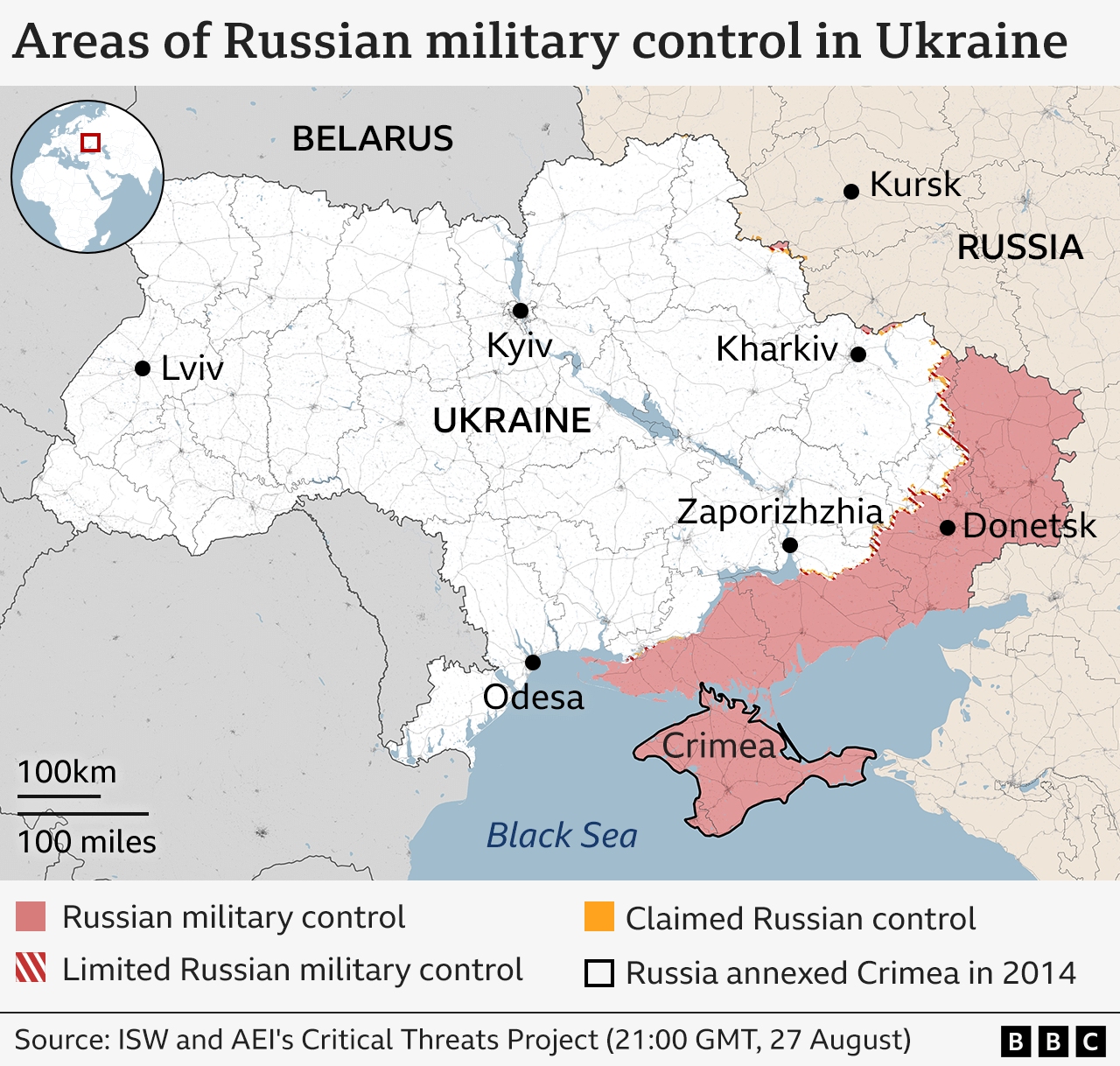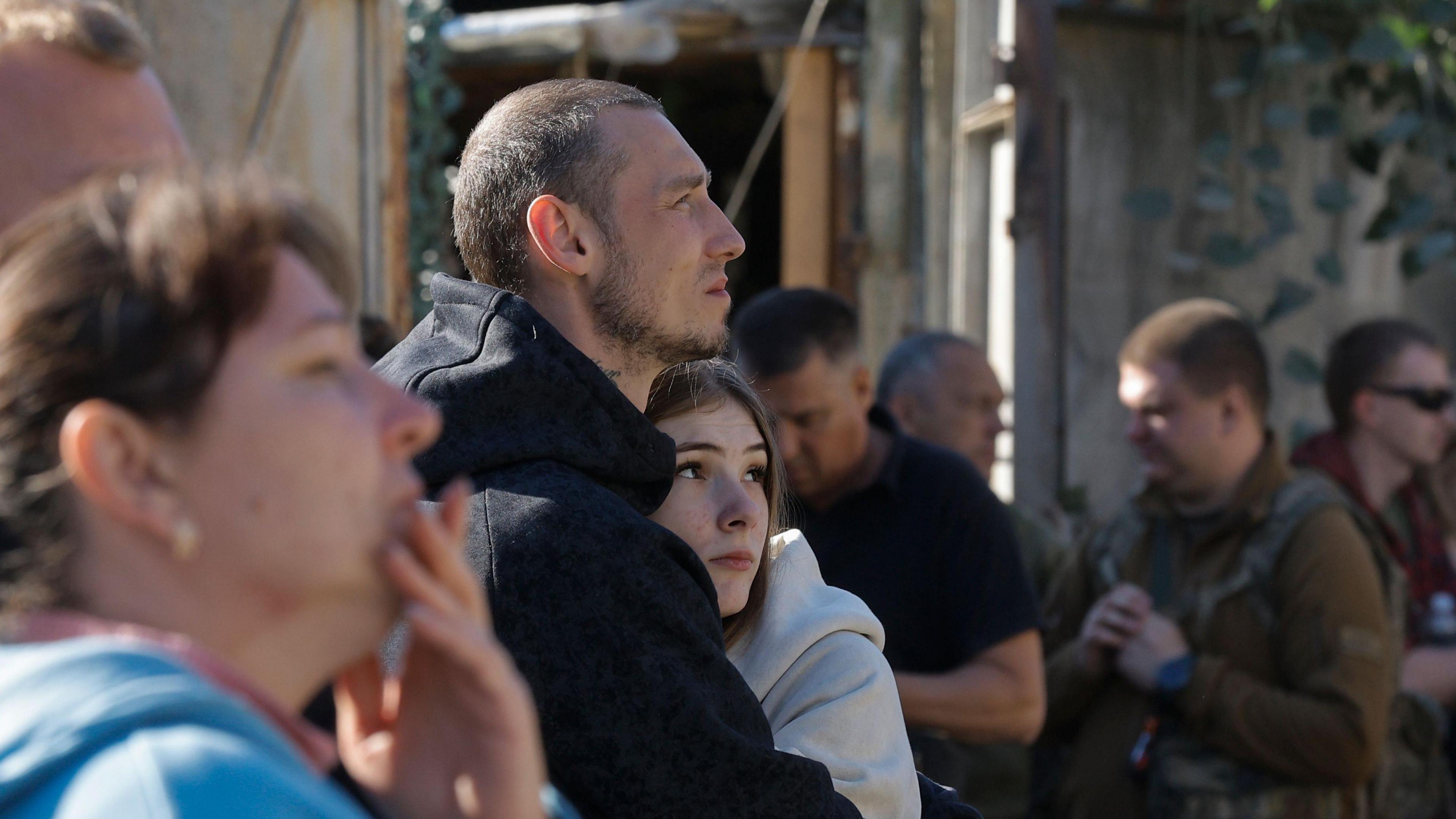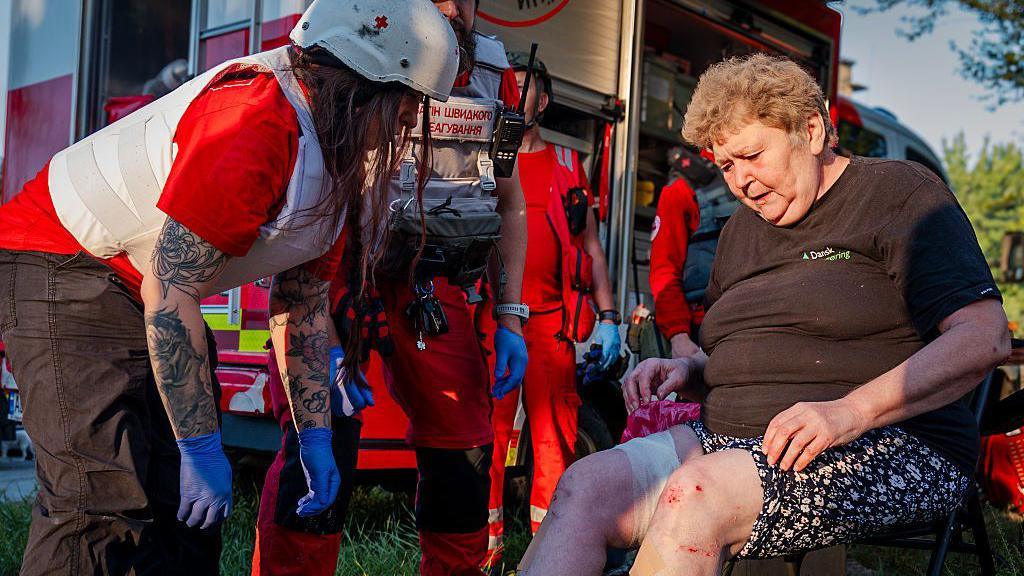Zelensky rejects proposals for buffer zone to end Ukraine war

- Published
Ukrainian President Volodymyr Zelensky has rejected proposals for a buffer zone between Ukrainian and Russian forces as part of a peace deal, arguing it does not reflect the realities of modern warfare.
"Only those who do not understand the technological state of today's war propose a buffer zone," he told reporters on Friday.
His comments followed a report suggesting European leaders were considering a 40km (25-mile) buffer zone as part of either a ceasefire or longer-term agreement.
The war in Ukraine has evolved into a conflict driven by drone technology, and Zelensky suggested a buffer zone of sorts already existed because of the threat of drone strikes close to the front line.
Buffer zones can create demilitarised zones between warring countries, such as North and South Korea, and physical boundaries such as the Iron Curtain - which separated the Soviet bloc and the West following World War Two.
According to a report in Politico, external, European diplomats said the proposal among military and civilian officials was for a strip of land in Ukraine to be blocked off between the two forces.
But Zelensky said there already was an area on either side of the front line where heavy artillery was unable to operate because of the risk of drone-fire.
"Today, our heavy weapons are located at a distance of more than 10km from each other, because everything is hit by drones, " he said.
"This buffer - I call it a 'dead zone', some call it a 'grey zone' - it already exists."
Any such deal could also mean Ukraine giving up some territory within the zone, which Zelensky also rejected: "If Russia wants to have a greater distance from us, they can retreat deep into the temporarily occupied territories of Ukraine."
He added that Russia was not ready for diplomacy but seeking ways to postpone the end of the war.

A US-led diplomatic offensive to end Russia's full-scale war, which has now lasted more than 40 months, appears to be losing momentum.
A high-stakes meeting last week between US President Donald Trump, Zelensky and European leaders raised hopes of a possible summit between the Ukrainian leader and Russia's Vladimir Putin.
But those hopes are looking increasingly remote and German Chancellor Friedrich Merz said there would "obviously not" be a meeting and it looked like Putin was "unwilling" to take part.
Russia fired 629 drones and missiles at Kyiv in the early hours of Thursday, killing 23 people, in one of the biggest aerial assaults of the war so far that has prompted outrage from European leaders. Two missiles landed near the EU's offices in central Kyiv.
After talks in the French city of Toulon, Merz and France's Emmanuel Macron said they would increase pressure on Russia due to Putin showing little interest in ending the war.
Macron said that if Putin did not meet a Monday deadline to agree to the talks, "it will show again President Putin has played President Trump".
Merz suggested the war could last "many more months".
EU foreign policy chief Kaja Kallas has condemned "Russia's ongoing assaults on civilians and civilian infrastructure, which are a deliberate escalation and undermine efforts toward peace".
On Friday, Zelensky's chief of staff Andriy Yermak discussed US peace moves with Trump's special envoy Steve Witkoff as well as US Secretary of State Marco Rubio and Vice President JD Vance.
Yermak said after their meeting in New York that while Ukraine welcomed all peace initiatives put forward by the US, "unfortunately, each of them is being stalled by Russia".
European leaders are working on providing Ukraine with security guarantees if a deal with Russia can be agreed.
Kaja Kallas said that EU defence ministers had agreed on Friday that they would need to be "robust and credible" and Zelensky said he expected talks to continue next week on "Nato-like" commitments that would provide Ukraine with protection.
However, Russian foreign ministry spokeswoman Maria Zakharova described latest Western proposals as "one-sided" and aimed at containing Russia.
"Security guarantees must be based on achieving a common understanding that takes into account Russia's security interests," she said.
Related topics
- Published29 August

- Published28 August

